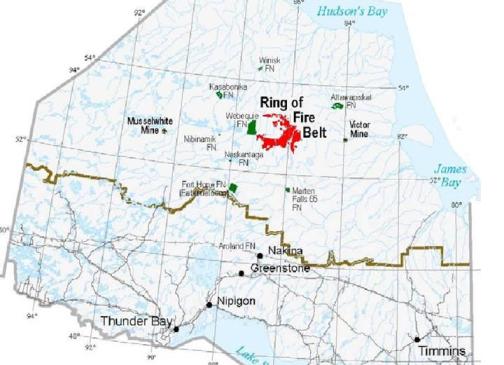The Ring of Fire Conference in Thunder Bay on June 23, 2011 was by invitation only.
CHECK AGAINST DELIVERY
Good afternoon, everyone, it is a pleasure to be here. What an exciting day and a half it has been here at the Ring of Fire Conference. It certainly is living up to expectations by promoting insightful dialogue and innovative thinking.
I’ve been asked to join you this afternoon again to share with you my vision and aspirations for the future of the Ring of Fire. I want to take it a step further by expressing my unequivocal conviction that the dream of sustainable and balanced mineral development can be achieved.
In doing so, I hope that I can inspire your creativity in coming up with innovative and strategic ideas that will help us create and manage the massive infrastructure development efforts required to foster growth in the Ring of Fire and beyond.
Yes, even though the Ring of Fire’s projected potential could mean production could go on for a century, it is important to think of the North’s continued prosperity even beyond the 100 years.
























